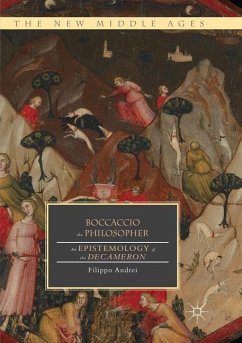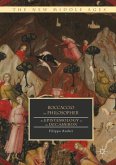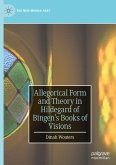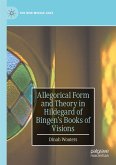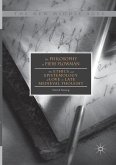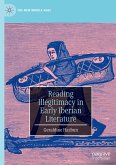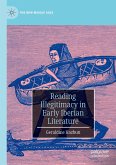This book explores the tangled relationship between literary production and epistemological foundation as exemplified in one of the masterpieces of Italian literature. Filippo Andrei argues that Giovanni Boccaccio's Decameron has a significant though concealed engagement with philosophy, and that the philosophical implications of its narratives can be understood through an epistemological approach to the text. He analyzes the influence of Dante, Petrarch, Thomas Aquinas, Aristotle, and other classical and medieval thinkers on Boccaccio's attitudes towards ethics and knowledge-seeking. Beyond providing an epistemological reading of the Decameron, this book also evaluates how a theoretical reflection on the nature of rhetoric and poetic imagination can ultimately elicit a theory of knowledge.
Bitte wählen Sie Ihr Anliegen aus.
Rechnungen
Retourenschein anfordern
Bestellstatus
Storno

